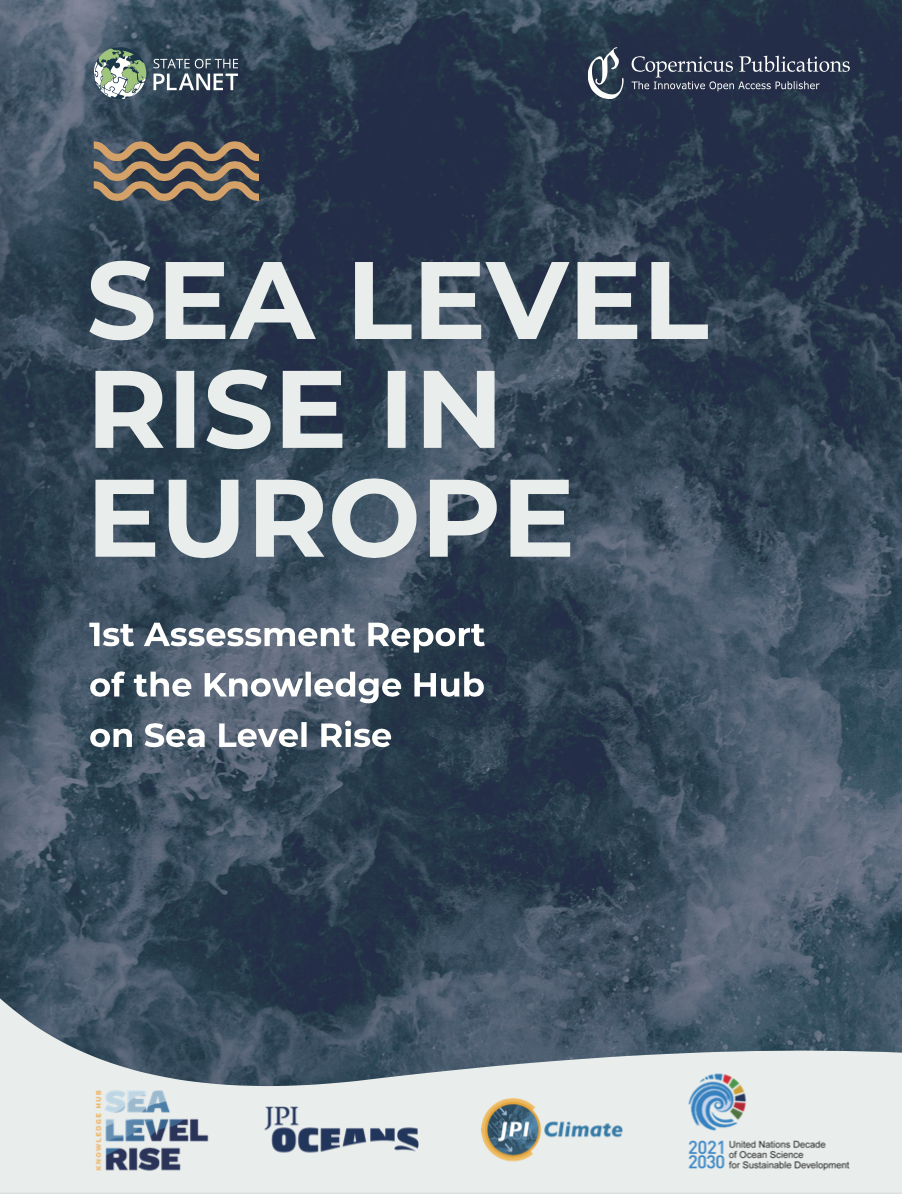The Knowledge Hub on Sea Level Rise is a joint effort by JPI Climate and JPI Oceans, focusing on regional to local sea level changes in Europe. It supports the development and implementation of related policies at local, national and European levels by providing a collaborative platform for knowledge exchange, synthesis and integration on regional and global, historical and future sea level rise. Through its work, the Hub brings together research and policy professionals from diverse disciplines to assess and communicate recent scientific and socio-economic developments in ways tailored to current policy debates and decision-making needs.
The long-term ambition of the Knowledge Hub is to provide periodic assessments of knowledge on sea level rise drivers, impacts and policy options for each of Europe’s major ocean basins. These assessments offer regularly updated, policy-relevant knowledge at regional and local scales, complementing existing global and European reports with additional geographical and contextual detail.

The overall ambition is to provide easy access to usable knowledge on regional-local sea level change in Europe, regularly updated as a series of periodic assessments. It complements existing global and European assessments by providing additional geographical and contextual detail, tailored to regional, national and European policy development and implementation.
To these ends, the four Task Groups of the Knowledge Hub's 1st Phase were mandated to work on the following:
- Co-design: Organizing, planning and co-designing with stakeholders the basin-specific scoping workshops and expert conference 2022. The group also worked towards a post-conference report, which will form one of the chapters of the assessment report.
- Policy: Providing a strong science-policy interface dimension to the TGs. Carrying out policy analysis and demand analysis. Working towards an inventory of SLR-relevant adaptation policy measures.
- Science: Providing the scientific basis on SLR, towards an inventory of scientific literature and methods. Carrying out state of the art and gap analysis.
- Outreach: Covering aspects of communication, outreach and output. Proposing the main output products of the KH.
Mandate
The JPI Oceans Management Board and JPI Climate Governing Board approved the Terms of Reference for the Knowledge Hub in November 2019, launching the preparatory phase. Meetings with interested funding organizations and ministries in 2020 further consolidated support from participating member countries.
Structure
In November 2020, the two Boards approved the Roadmap for Phase 1, including the expert scoping conference in Venice. The Governance Structure—comprising a Governing Council, Management Committee, and four Task Groups—was established and later refined following feedback in early 2021. The Management Committee held its first meeting in mid-2021 to initiate Task Group activities.
Global sea level rise is expected to be among the most costly and irreversible consequences of climate change. Since 1900, the global mean sea level has risen by approximately 20 cm and it is continuously rising at increasing rates of currently more than 3 mm per year, associated with anthropogenic climate change. Publications from the Intergovernmental Panel on Climate Change (IPCC), such as the Special Report on the Ocean and Cryosphere in a Changing Climate (SROCC), have strengthened the evidence for a predominant role of anthropogenic climate change in the observed global mean sea level rise and in the acceleration over recent decades. Current global sea level rise projections for the end of the 21st century vary between 40 cm and 2.5 m. This broad projection range results from uncertainties regarding the future greenhouse gas emissions, thermal expansion, melting of ice sheets and glaciers, and isostatic adjustments.
The long-term ambition of the Knowledge Hub on Sea Level Rise is to provide periodic assessments of knowledge on sea level rise drivers, impacts and policy options for each of the major ocean basins around Europe. The ambition is to provide easy access to usable knowledge on regional-local sea level change in Europe, regularly updated as a series of periodic assessments. It complements existing global and European assessments by providing additional geographical and contextual detail, tailored to regional, national and European policy development and implementation.